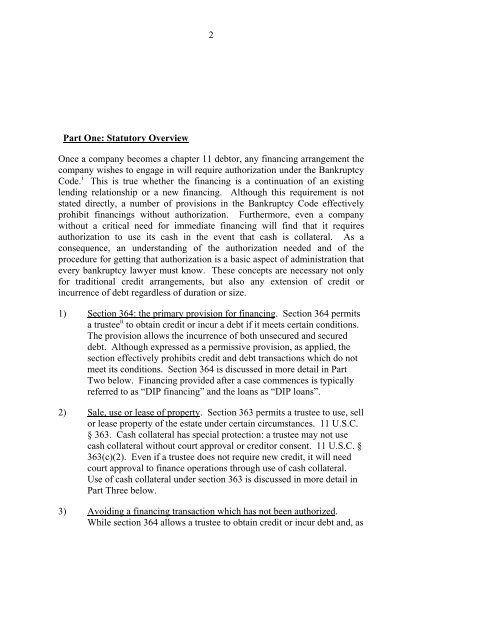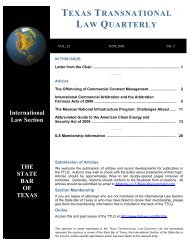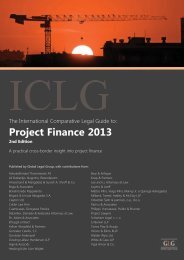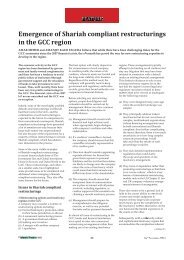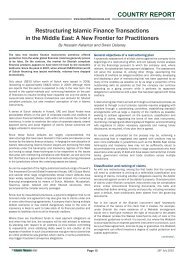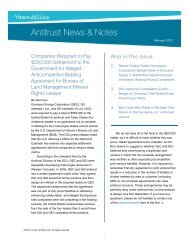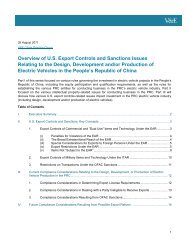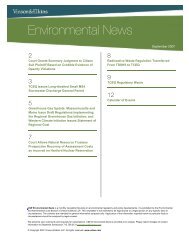12 AN INTRODUCTION TO DIP FINANCING Jane Lee
12 AN INTRODUCTION TO DIP FINANCING Jane Lee
12 AN INTRODUCTION TO DIP FINANCING Jane Lee
Create successful ePaper yourself
Turn your PDF publications into a flip-book with our unique Google optimized e-Paper software.
2<br />
Part One: Statutory Overview<br />
Once a company becomes a chapter 11 debtor, any financing arrangement the<br />
company wishes to engage in will require authorization under the Bankruptcy<br />
Code. i This is true whether the financing is a continuation of an existing<br />
lending relationship or a new financing. Although this requirement is not<br />
stated directly, a number of provisions in the Bankruptcy Code effectively<br />
prohibit financings without authorization. Furthermore, even a company<br />
without a critical need for immediate financing will find that it requires<br />
authorization to use its cash in the event that cash is collateral. As a<br />
consequence, an understanding of the authorization needed and of the<br />
procedure for getting that authorization is a basic aspect of administration that<br />
every bankruptcy lawyer must know. These concepts are necessary not only<br />
for traditional credit arrangements, but also any extension of credit or<br />
incurrence of debt regardless of duration or size.<br />
1) Section 364: the primary provision for financing. Section 364 permits<br />
a trustee ii to obtain credit or incur a debt if it meets certain conditions.<br />
The provision allows the incurrence of both unsecured and secured<br />
debt. Although expressed as a permissive provision, as applied, the<br />
section effectively prohibits credit and debt transactions which do not<br />
meet its conditions. Section 364 is discussed in more detail in Part<br />
Two below. Financing provided after a case commences is typically<br />
referred to as “<strong>DIP</strong> financing” and the loans as “<strong>DIP</strong> loans”.<br />
2) Sale, use or lease of property. Section 363 permits a trustee to use, sell<br />
or lease property of the estate under certain circumstances. 11 U.S.C.<br />
§ 363. Cash collateral has special protection: a trustee may not use<br />
cash collateral without court approval or creditor consent. 11 U.S.C. §<br />
363(c)(2). Even if a trustee does not require new credit, it will need<br />
court approval to finance operations through use of cash collateral.<br />
Use of cash collateral under section 363 is discussed in more detail in<br />
Part Three below.<br />
3) Avoiding a financing transaction which has not been authorized.<br />
While section 364 allows a trustee to obtain credit or incur debt and, as


